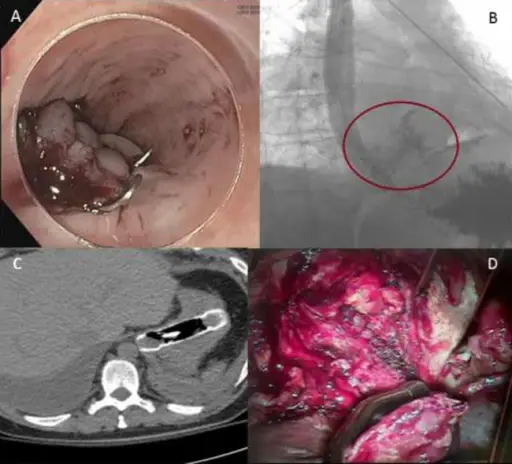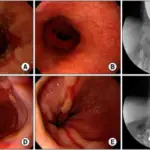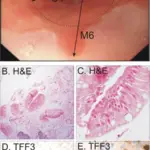Esophageal Lacerations is a disorder characterized by upper gastrointestinal tract bleeding caused by longitudinal mucosa a tear that does not penetrate the wall of the esophagus. The tear can be caused by forceful vomiting.
What is the Pathology of Esophageal Lacerations?
The pathology of esophageal lacerations is:
-Etiology: The cause of esophageal lacerations is violent coughing or vomiting.
-Genes involved: None.
-Pathogenesis: The sequence of events that lead to esophageal lacerations occurs when intraabdominal pressure suddenly and severely increases as in cases of forceful retching and vomiting, the gastric contents rush proximally under pressure into the esophagus. This excess pressure from the gastric contents results in longitudinal mucosal tears which may reach deep into the submucosal arteries and veins, resulting in upper gastrointestinal bleeding.
-Histology: The histology associated with esophageal lacerations shows rupturing of blood vessels.
How does Esophageal Lacerations Present?
Patients with esophageal lacerations typically in male present at age range of 50 to 70 years. The symptoms, features, and clinical findings associated with esophageal lacerations include: bright-red blood in vomit, and pain or stiffness in the neck.
How is Esophageal Lacerations Diagnosed?
Esophageal lacerations is diagnosed by endoscopy, angiography.
How is Esophageal Lacerations Treated?
Esophageal lacerations is treated by using heat to cauterize the bleeding blood vessel, clipping it closed, or injecting a drug into it.
What is the Prognosis of Esophageal Lacerations?
The prognosis of esophageal lacerations is good.



